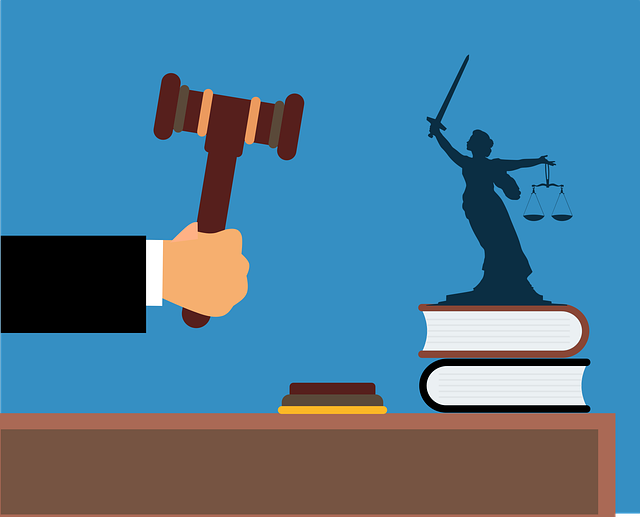The RF Securities Industry Regulation establishes standards for fairness, transparency, and integrity in financial markets through regulations targeting broker-dealers and advisors. Key distinctions exist between appeals, challenging legal or procedural errors, and post-conviction relief (PCR), addressing constitutional violations or newly discovered evidence after a judgment is finalized. Understanding these differences is crucial for effective navigation of regulatory processes, especially in high-stakes cases involving philanthropy and politics, as they significantly impact penalties and legal strategies, ensuring market fairness and investor protection.
“The securities industry, a cornerstone of global economies, is subject to stringent regulations, especially in the realm of RF (radio frequency) transactions. This article presents a comprehensive overview of RF Securities Industry Regulation, focusing on key aspects like understanding regulatory frameworks, the role of appeals in ensuring market fairness and investor protection, and post-conviction relief mechanisms. We delve into the nuances, highlighting the significant differences between appeal and post-conviction relief processes, offering critical insights for practitioners navigating this complex landscape.”
- Understanding RF Securities Industry Regulation: A Comprehensive Overview
- The Role of Appeal in Securing Market Fairness and Investor Protection
- Post-Conviction Relief: Redressing Injustices in the Securities Landscape
- Key Differences: Navigating Appeal vs. Post-Conviction Relief in RF Securities Cases
Understanding RF Securities Industry Regulation: A Comprehensive Overview

The RF Securities Industry Regulation is a complex web of laws and guidelines designed to ensure fairness, transparency, and integrity in financial markets. This regulation plays a pivotal role in protecting investors, maintaining market stability, and fostering trust in the industry. At its core, it involves setting standards for broker-dealers, investment advisors, and other market participants, encompassing areas such as trading practices, disclosure requirements, and anti-money laundering protocols. Understanding these regulations is crucial, especially in high-stakes cases involving corporate and individual clients from diverse sectors, including the philanthropic and political communities.
A key distinction within this regulatory framework is the differentiation between Appeal and Post-Conviction Relief processes. While Appeals focus on reviewing a lower court’s decision for errors in law or procedure, Post-Conviction Relief (PCR) deals with claims of constitutional violations or newly discovered evidence that could have altered the outcome of a case. This difference becomes pertinent when navigating regulatory penalties and legal strategies, particularly in complex financial matters. Effective regulation ensures these processes are fair, transparent, and aligned with the broader goals of market integrity.
The Role of Appeal in Securing Market Fairness and Investor Protection

In the securities industry, ensuring market fairness and investor protection is paramount, and appeal plays a pivotal role in achieving this. Unlike post-conviction relief, which focuses on reevaluating a judgment after it’s been finalized, an appeal allows for the review of legal errors or procedural mistakes made during the original trial. This process helps maintain the integrity of financial markets by correcting potential injustices.
The distinction between appeal and post-conviction relief is crucial. While both aim to rectify wrongs, their scope differs; appeal centers on the application of law and procedure, while post-conviction relief can also address factual issues. With an unprecedented track record across the country, a robust appeals system enables regulatory bodies to adapt to evolving market dynamics, ensuring that rules and regulations remain effective in protecting investors and fostering a stable, efficient respective business environment.
Post-Conviction Relief: Redressing Injustices in the Securities Landscape

In the securities industry, ensuring fairness and justice is paramount, especially after convictions. Post-conviction relief offers a crucial mechanism to redress injustices, providing an avenue for review when conventional appeal processes may fall short. Unlike appeals, which focus on reviewing legal errors or procedural issues within the original trial, post-conviction relief delves into the fundamental validity of the conviction itself.
This process is particularly significant in high-stakes cases where the consequences can be severe, including the possibility of a complete dismissal of all charges. Through post-conviction remedies, individuals can challenge their convictions based on newly discovered evidence, ineffective assistance of counsel, or procedural irregularities not previously addressed. This ensures that jury trials remain fair and just, upholding the integrity of the legal system in the securities landscape.
Key Differences: Navigating Appeal vs. Post-Conviction Relief in RF Securities Cases

In the realm of RF securities industry regulation, understanding the nuances between appeal and post-conviction relief is paramount for both general criminal defense attorneys and their corporate and individual clients. While appeals challenge decisions made during initial trials, focusing on legal errors or misinterpretations, post-conviction relief (PCR) offers a more comprehensive approach by examining whether new evidence has emerged that could significantly alter the outcome.
The key differences lie in scope and timing. Appeals are typically filed within a specified period after the conviction, directly challenging the verdict. In contrast, PCR petitions are often employed when new facts or legal precedents come to light, even years after the initial trial. This distinction is crucial for winning challenging defense verdicts, as it allows for a more strategic and nuanced approach in navigating the complex landscape of RF securities cases.
The regulation of the securities industry, particularly in the context of RF Securities, is a complex yet vital aspect of maintaining market integrity. This article has explored various facets, from the foundational understanding of industry regulation to specialized mechanisms like appeals and post-conviction relief. By examining the key differences between appeal and post-conviction relief processes, investors and professionals can navigate the complexities of RF Securities cases more effectively. These insights underscore the importance of meticulous legal strategies, ensuring fairness, and protecting investor rights in an ever-evolving market landscape.






